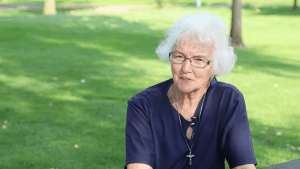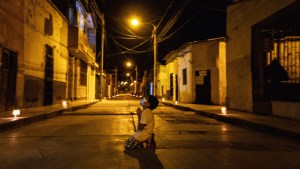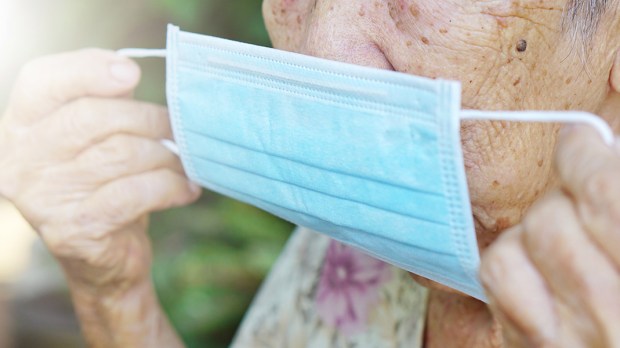Something unusual happened on Monday morning, April 13, at Santa Justa Station in Seville, Spain. It’s one of the best known train stations in Spain because it’s where the high-speed train, the AVE, arrives. That Easter Monday morning there were no crowds of tourists returning from Seville’s Holy Week, as there would be under ordinary circumstances, only workers returning to their jobs in the midst of a state of emergency due to the coronavirus.
An elderly woman arrived from Jerez de la Frontera (Cadiz) and needed to change trains to take one to Granada. Two agents of the National Police were in charge of distributing masks to passengers at the entrance to the tracks. The elderly woman, who was carrying two suitcases, took the mask and explained to the police why she was traveling: “People don’t want to take care of the elderly for fear of contagion.”
The agent would later explain, “She told us that she had come from Jerez [south of Seville], where she had been working as a volunteer in a nursing home. Since things were already quiet there after some very difficult days, she was going to another retirement home in Granada to help out because the situation had become very bad, and some of the staff didn’t want to look after the elderly for fear of contagion.”
The elderly woman’s explanation left the police dumbfounded. How could a woman of her years, who was clearly past the age of retirement, go to a dangerous place—a nursing home—with a high possibility of catching the coronavirus?
The statistics made clear the danger for her. Up until that point, a third of the deaths from COVID-19 in Andalusia (southern Spain) had occurred in residences for the sick and elderly.
Why was this woman going to a nursing home as a volunteer? Wouldn’t she be better off at home, confined and protected?
The policeman addressed her again: “I had to ask her because I found it hard to understand. I asked her how, knowing that the virus is more dangerous for older people and that she was already a senior citizen, she could expose herself that way? Wasn’t she afraid of getting sick?”
The old woman’s answer contains more wisdom than all the books in the world: “She asked me if I knew any other better way to die than by helping others.”
The train ticket
The woman then asked him for help getting her ticket from Seville to Granada. “She hadn’t bought one in 20 years and didn’t know how to do it,” the police officer said.
She had also discovered that the ticket vending machine only accepted payment by bank card to avoid contagion through coins. “A station cleaner who was near us and who had heard what she’d told us, offered to help her, and paid for her train ticket to Granada.”
A call to the newspaper
We know these details because the police officer later shared them with Spanish regional newspaper ABC Seville.
The day after the events at the station, the policeman saw that the cover of ABC Seville carried the very image of that woman at the moment he had handed her the mask. He immediately thought that people should know who this person was.
He called the newspaper and told journalist Silvia Tubio what had happened. “The fact is, her story touched everyone. There are very good people in the world, and she’s one of them,” he told the reporter.
A life lesson
That elderly woman’s name is Ana Maria. Once she had her ticket in hand, the agent thought it best to take her to her train: “I accompanied her to the platform,” he explained, “and told a stewardess to keep an eye on her. She hadn’t been on a train for so long that I was afraid to leave her alone.”
Before leaving Santa Justa Station, the policeman returned to the train to say goodbye to Ana Maria. “What a life lesson she had just given us all,” he said later.

Read more:
This grandma volunteers in prison and records goodnight stories from inmates for their kids

Read more:
Six-year-old boy praying on his knees in the street for the end of the coronavirus goes viral

